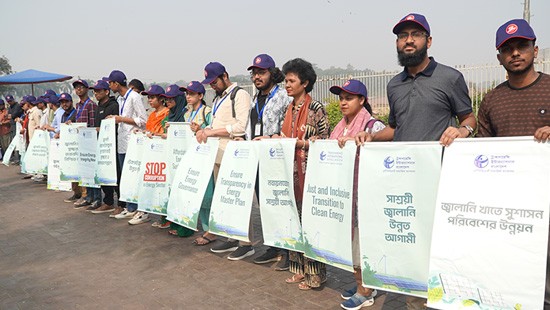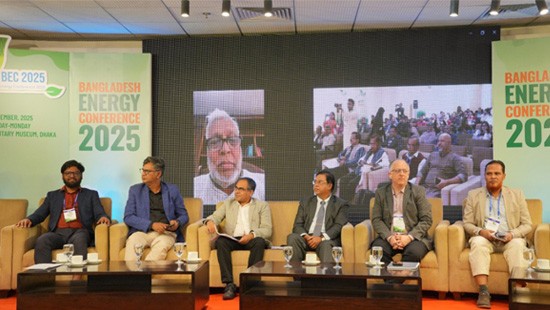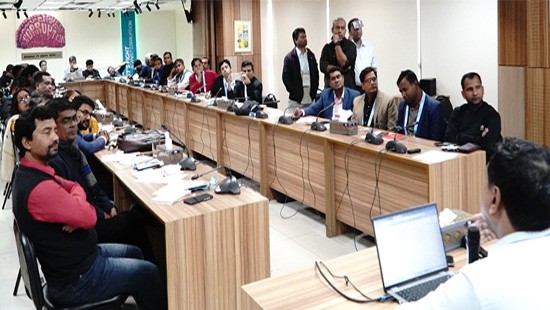Published: 04 July 2019
From preventative perspective, the investigators of Anti-Corruption Commission (ACC) can play exemplary role through effective investigation. However, challenged with limited resources to ensure effective implementation, ACC investigators should always be updated with new skills as corruption cases require extensive knowledge base with technological updates.
Considering the significance of effective investigation, Transparency International Bangladesh (TIB) organized a training on ‘Effective Investigation of Corruption’ from 3-4 July 2019 at its head office to capacitate the investigators of Anti-Corruption Commission (ACC), Bangladesh. The training brought together 30 mid-level and higher mid-level ACC investigators from all around the country.
The training was conducted by a panel of relevant experts from different areas. The panel included Former Justice of High Court division Md. Azizul Haque; the Deputy General Manager of Bangladesh Financial Intelligence Unit (BFIU) of Bangladesh Bank; and Associate Professor of Department of Law, University of Dhaka Mr. Quazi Mahfujul Hoque Supan. The one and half days training included both theoretical and practical sessions. The aim of the training was to familiarize ACC Investigators with the methods on the detection of corruption and evidence gathering during inquiry and investigation, stemming Illicit financial flows and misinvoicing, and forensic evidence for investigation of corruption/money laundering cases.
Under the Memorandum of Understanding (MoU) signed between ACC and TIB for 2017-2019, the training, second of its kind, was organized to strengthen the anti-corruption prevention activities in the country.
The training programme was designed following the set of recommendations stated in an assessment of the Anti-Corruption Commission (ACC) of Bangladesh carried out by TIB as part of an initiative by Transparency International (TI) to engage with anti-corruption agencies in a process of conducting evidence based research to examine their performance and identify the challenges in selected jurisdictions.
In the inauguration of the programme, welcoming the participants to the event TIB’s Executive Director Dr. Iftekharuzzaman said, TIB has long term relationship with ACC from its formation. TIB has not only been involved in the process that led to the creation of the Anti-Corruption Commission (ACC) of Bangladesh, but has been devoting significant portion of its efforts to advocate and provide support to take it to higher levels of effectiveness. The ACC has also found this partnership useful and created_at the space in many ways that TIB could work with ACC in selected areas of common interest towards strengthening the anti-corruption movement in Bangladesh.
Dr. Zaman added, there is no alternative to effective investigation and prosecution of corruption cases in curbing the menace of corruption practices. This training program is part of the process through which TIB expects that the participant investigators will be enriched with the knowledge and techniques of countering corruption, Dr. Zaman concluded.
In his welcoming speech, Md. Akhtar Hossain, Director, ACC, Dhaka Divisional Office also encouraged the participants to take this training as learning opportunity and to get the best of it by making the sessions interactive sharing their practical experiences.
Followed by the inauguration, Justice Md. Azizul Haque, an expert on legal interpretation of anti-corruption laws of Bangladesh facilitated an interactive session in the opening day on the interpretation and implication of existing anti-corruption laws for detection of corruption and evidence gathering during inquiry and investigation. After an open discussion with the facilitator about their practical experiences, participants were engaged in a group discussion dividing into three groups and came out with their observation on legal weaknesses in inquiry and investigation; analysis of information and documents and interrogation techniques; and external factors affecting inquiry, investigation and charge sheet processes. Followed by the group discussion, each group presented their findings.
In the afternoon session, Mr. Kamal Hossain, an expert on financial intelligence discussed on stemming illicit financial flows from Bangladesh with a special focus on trade based money laundering. He also highlighted on the mandated role of ACC and its investigators in implementing Money Laundering Prevention Act, 2012. Later, participants engaged in a group discussion on illicit financial flows, trade misinvoicing, track and prevent transaction of anonymous companies etc.
In the final day, Mr. Quazi Mahfujul Hoque Supan, an expert of Forensic investigation detailed on forensic evidence for investigation of corruption or money laundering cases. His session covered case based analysis and discussion on the basic knowledge of forensic science and forensic evidence, its importance in corruption/money laundering cases, data acquisition and preservation of forensic evidence, legal framework for relevancy and admissibility of digital evidence, role of ACC investigators etc.
In the concluding ceremony, participants expressed gratitude to TIB for taking such an initiative and hoped that the lessons they gathered through these fruitful sessions will help them to play a better role in determining effective implementation of investigation and prosecution of corruption cases. Thanking the investigators for their active participation in the training, Dr. Iftekharuzzaman said, investigators need to be vigilant, innovative, properly trained and professional in their investigation. He expressed his hope that the training was helpful for them in this regard. Appreciating the initiative of TIB, Md. Akhtar Hossain, Director, ACC, Dhaka Divisional Office said that the session on forensic evidence was a new arena for the investigators and will recommend ACC to arrange further training on this issue. After completing the training course, ACC Investigators were awarded with certificates.
The images of the event can be found here: http://bit.ly/2JGz5pO












